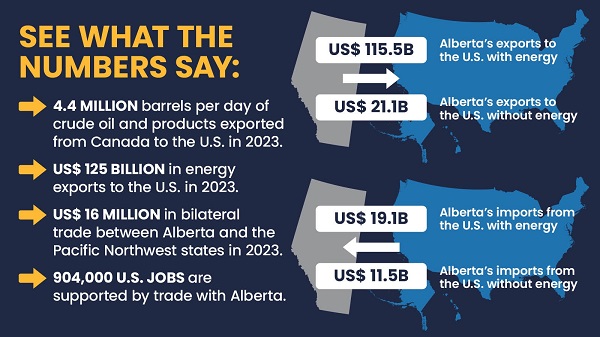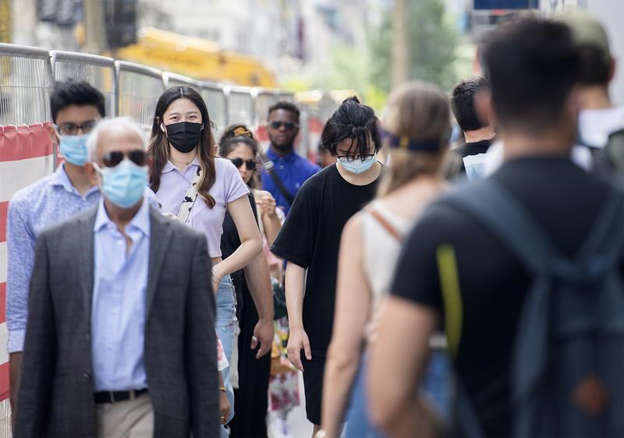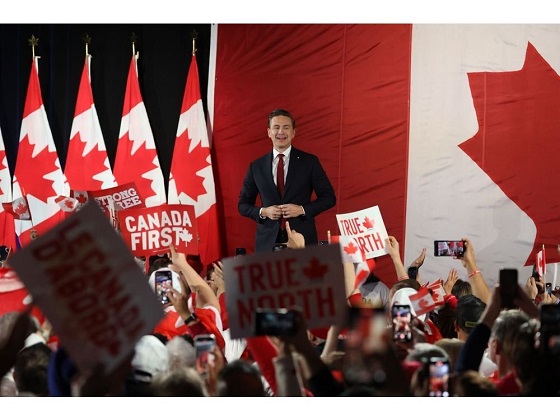Business
Liberal leadership debate sees candidates bash Trump, promise to fight ‘climate change’
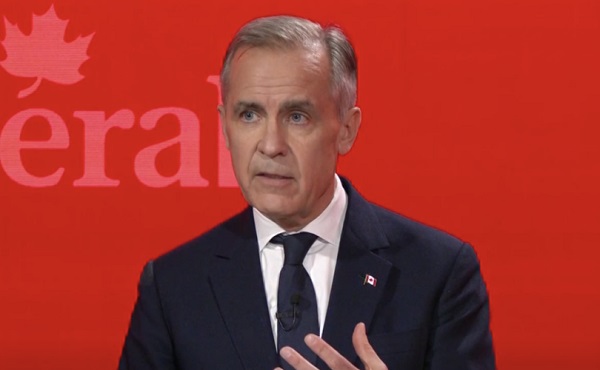
From LifeSiteNews
Monday’s debate saw candidates Chrystia Freeland, Mark Carney and others accuse U.S. President Donald Trump of being the nation’s biggest threat while also restating their commitment to fighting ‘climate change.’
The first debate among Liberal leadership hopefuls Monday night saw the candidates focus heavily on bashing U.S. President Donald Trump, with all in the running also pledging their commitment to fighting “climate change.”
The French language debate, held in Montreal, saw frontrunner Mark Carney, former Finance Minister Chyrstia Freeland, and the two other lesser-known candidates, former House leader Karina Gould and former Liberal MP Frank Baylis, debate for two hours on a variety of topics, with Trump-bashing taking center stage. Freeland and Carney in particular, both of whom have ties to the globalist World Economic Forum, claimed Trump is the biggest threat Canada has faced in decades.
When asked about Trump’s ongoing threat to impose 25 percent tariffs on all Canadian goods at the start of March, Carney said, “Today’s Trump is very different from the Trump of the past,” asserting he is “more aggressive” than ever and that “he wants our country.”
Carney, who has a history of pushing the climate change narrative, was asked about his recent comments suggesting he would use emergency powers to combat Trump’s tariff threats by green-lighting energy projects in an attempt to make Canada less dependent on its neighbor to the south.
In response, Carney, whose proficiency in French seemed weaker than the others, appeared to hold back on committing to the building of pipelines from Alberta to Eastern Canada, but saying that such a project could be “possible.”
“70% of our oil comes from the U.S., our neighbor. No longer our friend, of course,” he added.
For Freeland’s part, she claimed that “Trump represents the greatest threat to Canada since World War II,” later boasting that she is the “only” one who could take on Trump via negotiation.
All the candidates said they “completely agree” that Trump is Canada’s largest “threat,” and all took turns bashing their biggest political rival, Conservative Party leader Pierre Poilievre, labeling him incompetent.
The leadership candidates also all agreed that “fighting” climate change was a priority but did not elaborate on what they would do differently than Prime Minister Justin Trudeau, whom they all praised for his “climate” leadership. Carney and Freeland, both of whom have long supported carbon taxes, vowed to eliminate the consumer carbon tax despite standing by it for years.
In addition to their ties to the WEF, both Freeland and Carney have a history of promoting or endorsing anti-life and anti-family agendas, including abortion and LGBT-related efforts.
Freeland is known by many as being the finance minister responsible for freezing the bank accounts of the 2022 Freedom Convoy participants and donors, actions Carney endorsed at the time.
Carney also recently admitted to being a “globalist” and an “elitist,” but defended the labels as positives.
The Liberal Party of Canada will choose its next leader, who will automatically become prime minister, on March 9, after Trudeau announced that he plans to step down as Liberal Party leader once a new leader has been chosen.
With respect to Trump, he has mentioned multiple times that he desires to annex Canada and turn it into a state.
Trump’s talk of taking over Canada by economic force comes at the same time he has threatened to impose massive tariffs on the nation.
Canada was given a 30-day reprieve from 25 percent tariffs by Trump at the end of January after Trudeau promised in a call to increase border security and crack down on fentanyl at the border. However, Trump has imposed a 25 percent tariff on steel and aluminum products.
Business
COVID lockdowns in Canada cost small businesses $60 billion in first year alone

From LifeSiteNews
In the first year of COVID lockdowns Canada’s small-to-medium-sized businesses, many of which are family-run, lost a combined $60 billion in gross profit, according to recently released statistics.
On February 18 Statistics Canada released a report regarding “Borrowing, repayments and bankruptcies” from Ottawa’s Canada Emergency Business Account (CEBA) program, finding that businesses with less than $1.5 million in annual expenses “experienced a drop in gross profit, totaling a loss of nearly $60 billion” from 2019 to 2020.
The CEBA program was struck in March of 2020 to give out businesses affected by COVID lockdowns interest-free loans of up to $60,000. The loans came with strings attached, however, and had to be paid back by a certain date to only have to pay a partial amount back.
The report noted that the COVID lockdowns, which were imposed by all provincial governments as well as mandated by the federal government for the agencies it ran, from 2020 to most of 2021, were “most challenging for client-facing industries.
Businesses that reported the biggest declines in gross profit were “client-facing ones, such as food service and drinking places, hotels, and offices of dentists and physicians,” noted the report. Many of these are family-run businesses.
When it comes to bankruptcies, the report noted that they rose sharply from about mid-2022 to early 2024, notably coming after businesses had to start repaying the CEBA loans, which came due on January 18, 2024.
COVID vaccine mandates, as well as lockdowns, which came from provincial governments with the support of the federal government, split Canadian society. The mRNA shots have been linked to a multitude of negative and often severe side effects in children.
In many provinces, such as Alberta, small and medium-sized businesses also fought back via lawsuits against their governments and health agencies, which put in place COVID rules.
LifeSiteNews reported last November, that a class-action lawsuit on behalf of dozens of Canadian business owners in Alberta who faced massive losses or permanent closures due to COVID mandates, was given the go-ahead to proceed by a judge.
As a result of COVID dictates, many Canadians fought back, most notably in the form of the 2023 Freedom Convoy, which saw thousands of Canadians from coast to coast come to Ottawa to demand an end to COVID mandates in all forms. Despite the peaceful nature of the protest, Prime Minister Justin Trudeau’s government enacted the never-before-used Emergencies Act (EA) on February 14, 2022.
As reported by LifeSiteNews, the Freedom Convoy’s two main leaders Tamara Lich and Chris Barber face a possible 10-year prison sentence. LifeSiteNews reported extensively on their trial, the verdict of which will be released on March 12.
Bjorn Lomborg
We need to get smart about climate
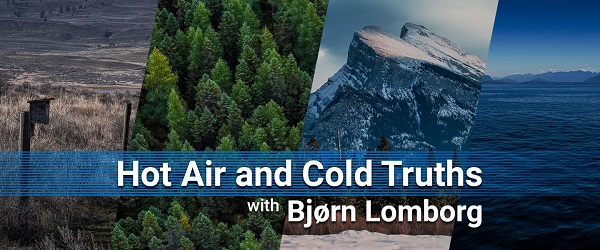
From the Fraser Institute
APPEARED IN THE FINANCIAL POST
By: Bjørn Lomborg
Canada’s chattering classes claim that climate change is one of the country’s pre-eminent threats. This is extraordinary. Canada is experiencing a productivity slowdown, the worst decline in living standards in 40 years, and growth rates that lag most developed economies. Geopolitical threats loom, the healthcare system is under stress and education is faltering. Yet the federal government has spent or committed more than $160 billion on climate initiatives since 2015, and is funneling $5.3 billion to help poor countries respond to climate change.
Like most nations, Canada faces tough decisions in coming decades. Resources spent on climate will not be not available for health, education, security or boosting prosperity.
Global warming is a real problem. Science has shown quite clearly that more CO₂, mostly from fossil fuel use, increases global temperatures. Climate economics has shown how this brings both problems and benefits (for instance, more deaths caused by heat, fewer by cold) but, overall, more problems than benefits. More CO₂ means higher social costs, so reducing CO₂ does have real benefits.
But climate policies also have costs. They force families and businesses to use more expensive energy, which slows economic growth. You might have heard otherwise but if the new ways really were cheaper, no regulations or mandates would be needed.
If climate change were treated like any other political issue, we would openly recognize these trade-offs and try to balance them to get the most climate benefits for the least cost, recognizing that climate policies need to compete against many other worthy policies.
But in two important ways the climate conversation has gone off the rails.
First, people say — wrongly — that global warming is an existential challenge, risking the end of mankind. Of course, if the world is about to end, it follows that any spending is justified. After all, if a world-obliterating meteor is hurtling towards us, we don’t ask about the costs of avoiding it.
Second, it is also often claimed — somewhat contradictorily — that the green transition will make energy cheaper, societies safer and everyone richer. In this “rainbows and unicorns” scenario, there are no trade-offs and we can afford climate policy and everything else.
Both claims are repeated ad nauseam by Canadian politicians and activists and spread by media hooked on selling climate catastrophes and green utopias. But both are quite untrue.
That is why I’m writing this series. I will outline how many of the most sensationalist, scary climate stories are misleading or wrong and ignore the best climate science. Being data-driven, I will show you this with the best peer-reviewed data and numbers.

So: Is climate change the world’s all-encompassing problem today? One way to test this is to look at extreme weather, which we constantly hear is having an ever-larger impact on our societies. But the data paint a very different picture (see chart).
We have good evidence for the number of people killed in climate-related disasters, i.e., floods, storms, droughts, and fires. (We’ll look at temperature deaths next week.) A century ago, such disasters routinely killed hundreds of thousands, even millions of people in a single disaster. On average, about half a million people a year died in such disasters. Since then, the death toll has declined precipitously. The last decade saw an average of fewer than 10,000 deaths per year, a decline of more than 97 per cent.
Of course, over the past century the world’s population has quadrupled, which means the risk per person has dropped even more, and is now down by more than 99 per cent. Why this great success story? Because richer, more resilient societies with better technology and forecasting are much better able to protect their citizens. That doesn’t mean there is no climate signal at all, but rather that technology and adaptation entirely swamp its impact.
In the same way, climate’s impact on overall human welfare is also quite small. In proportion to the total economy, the cost of climate-related disasters has been declining since 1990. Looking to the future, the best estimates of the total economic impact of climate change come from two major meta-studies by two of the most respected climate economists. Each shows that end-of-century GDP, instead of being 350 per cent higher, will only be 335 per cent higher.
“Only” becoming 335 per cent richer is a problem, to be sure, but not an existential threat. Despite that, as this series will show, many of the most draconian climate policy proposals so casually tossed around these days will do little to fix climate but could dramatically lower future growth and the opportunities of future generations.
We need to get smart on climate. This series will map out how.
-

 Addictions2 days ago
Addictions2 days agoDoes America’s ‘drug czar’ hold lessons for Canada?
-
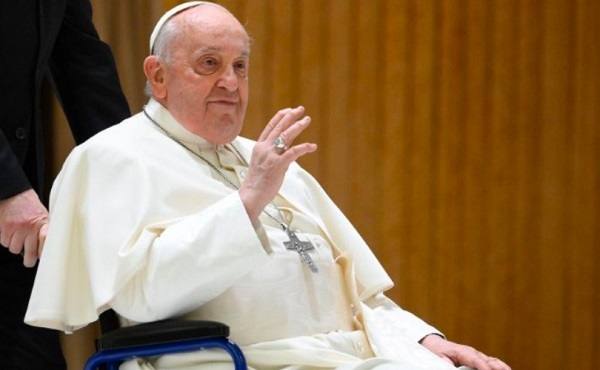
 International1 day ago
International1 day agoVatican reports ‘slight improvement’ in Pope Francis’ condition
-

 Artificial Intelligence1 day ago
Artificial Intelligence1 day agoApple bets big on Trump economy with historic $500 billion U.S. investment
-
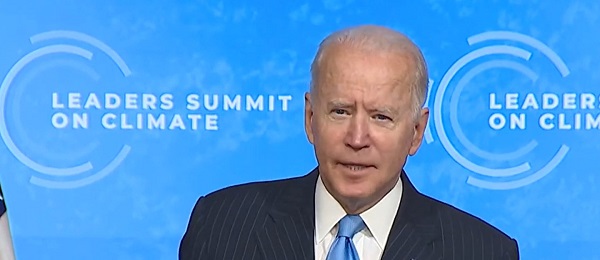
 Business1 day ago
Business1 day agoBiden’s $20B grant to climate groups involved “self-dealing”
-

 Bruce Dowbiggin1 day ago
Bruce Dowbiggin1 day agoWayne’s World Has Moved South. Canadians Are Appalled. Again.
-
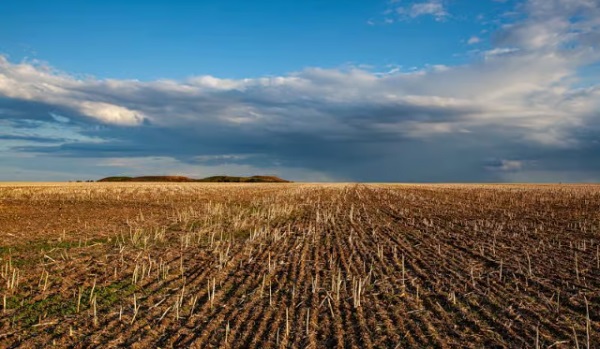
 Agriculture1 day ago
Agriculture1 day agoHow USAID Assisted the Corporate Takeover of Ukrainian Agriculture
-

 conflict1 day ago
conflict1 day agoTrump meets Macron at White House, says Ukraine war ending soon
-
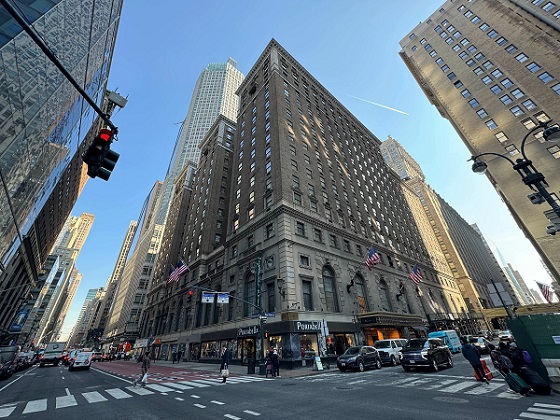
 Daily Caller1 day ago
Daily Caller1 day agoMigrants Won’t Be Putting Their Feet Up At One NYC Hotel Much Longer


